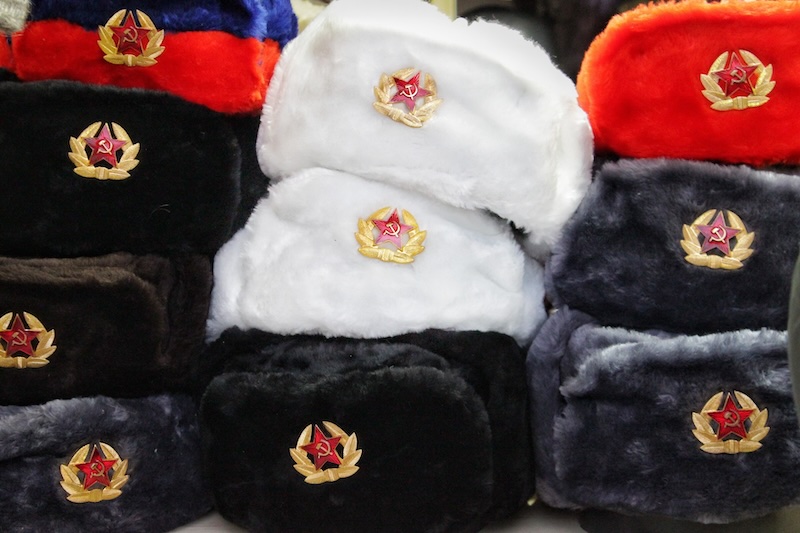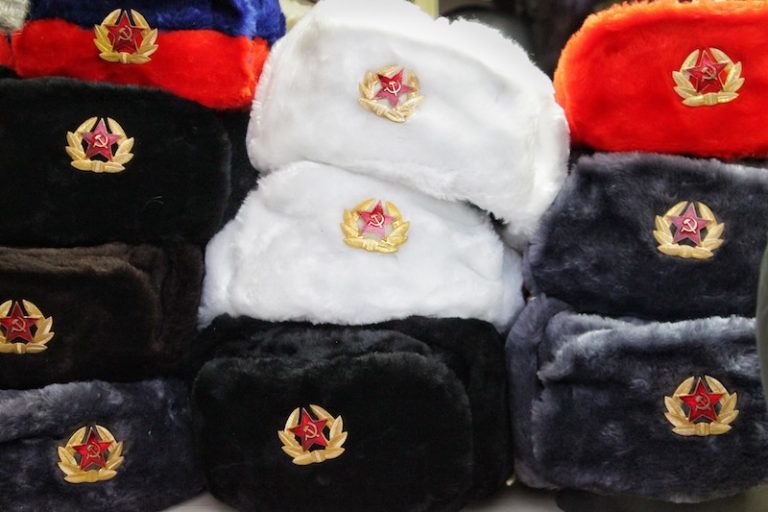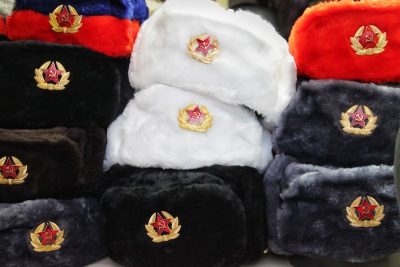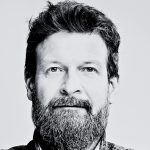A fur lobbyist organizes high-profile, anti-EU demonstrations in Poland and Brussels. Meanwhile, his brother (and business associate) quietly controls a mink farm in the Kaliningrad region.
The Wójcik family imported mink pelts worth millions from Russia — until international sanctions slowed down their business.
One of the Wójcik brothers was detained by the FSB in May: he was accused of having tried to bribe a Russian agency to be allowed to ship fur to Asia. The Wójcik brothers are doing everything they can to keep the issue quiet in Poland.
One member of Wójcik’s Russian company’s supervisory board is an associate of Law and Justice MP Jarosław Sachajko
They call them: kings of the fur industry. Or: tycoons. The face of the Polish mink breeding empire is Szczepan Wójcik, but the entire family, based in Radom, is nestled in mink: the Wójcik brothers and their wives run mink farms in 18 towns across Poland.
Szczepan Wójcik knows how to keep momentum and work public relations. He has his own news outlet and set up foundations and institutes. He lobbies in the Sejm, Poland’s parliament. A few years ago, he managed to humiliate Jarosław Kaczynski — when Kaczynski tried to block legislation restricting mink breeding, Wójcik organized a march in Warsaw supported by Tadeusz Rydzyk (an influential priest and long-time PiS ally). Recently, he has been particularly active at anti-EU farmers’ demonstrations in Poland and Brussels.
Szczepan Wójcik also heads a lobbying foundation, which was advised by as many as seven of the party’s politicians during the PiS government, including Jacek Sasin, Zbigniew Kuźmiuk, and Norbert Kaczmarczyk, connected to Zbigniew Ziobro, former minister of justice. One of the foundation’s advisors was Krzysztof Jurgiel himself, who oversaw it as minister.
Szczepan is a frontman, a regular in the media. One rarely hears about the other brothers. Few even know what they look like. But one of them — Wojciech — had his image become public in early May, when Russian FSB officers dragged him out of his car onto the street. All news sites in the Kaliningrad region trumpeted the detention.
In the photo, Wojciech Wójcik, held down by cosseted men, stares at the camera in surprise.
Sovkhoz with a grant from Putin
What did the prosecutor’s office in Kaliningrad accuse Wojciech Wójcik of? Attempting to bribe Russia’s Federal Service for Veterinary and Phytosanitary Supervision (Rosselkhoznadzor). The mink breeder tried to pay $3000 for the issuance of certificates needed to export fur from Russia to Asia.
His bail was set at 50 million rubles (about 2.3 million zlotys). It is not known where he is now or whether the Russians released him to Poland. His family says Wójcik remains in Russia — in custody.
The Polish Foreign Ministry confirms that the Polish consulate in Kaliningrad is aware of the issue of Wójcik’s detention, but refuses to give details because the issue is “sensitive.” How did one of the brothers end up in Kaliningrad? And why did he end up in the sights of Russian services?
FRONTSTORY found that Wojciech Wójcik has been investing in Russia since at least 2021. He took control of a former Soviet farm in Kaliningrad and imported mink pelts (i.e. raw material for fur production) from that farm to Poland. In 2023, his Russian company sold the pelts for 126.5 million rubles (now nearly PLN 6 million).
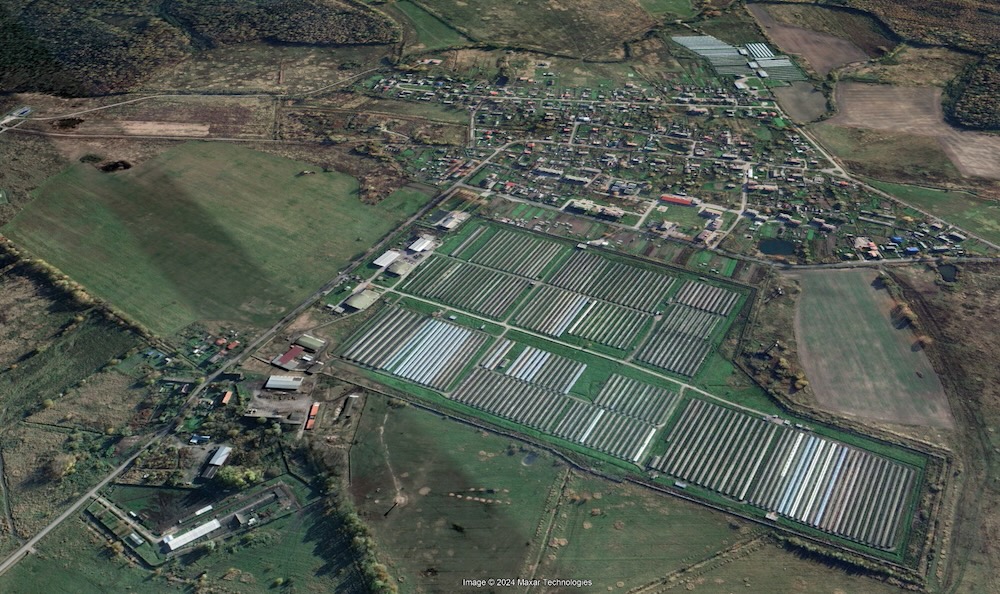
In the foreground is the mink farm of Bagration Agro-Farm, in the background is the village of Partizanskoe. Source: Google Earth
Why farm in Russia when mink farmers are successfully doing business in Poland? Wójcik benefits from the generosity of Putin’s state. Russia — unlike Poland — subsidizes mink breeding. Thanks to this, Wójcik’s company gets subsidies of up to 20 million rubles a year (about 1 million zloty).
But that’s not the only reason for running away with business to Russia: The European Union is increasingly protecting animals, meaning, among other things, that more countries are putting mink farms out of business (currently 17 member states prevent breeding). In 2018. Wojciech Wójcik, through a company founded by a lawyer, starts leasing farms in Ukraine. A year before the war broke out, he acquired a majority stake in a company in Russia from the village of Partizanskoye, 25 km south of Kaliningrad. The inconspicuous company is the majority shareholder of the former sovkhoz Agrofirma Bagrationovskaya, a collective farm turned into a company after the collapse of the USSR. At its heart is a huge farm that kills more than 100,000 of these animals each year.
After taking over Agrofirma, Wojciech Wójcik joined its supervisory board. His long-time associates Barbara Suchodolska and Konrad Piwonski also became Agrofirma supervisors.
Sachajko on a thriving branch
Piwoński is a breeder with business ties to the Wójcik companies, and is also secretary of the board of the national Farmers and Consumers Association. Piwoński’s colleague on that board is Law and Justice MP Jarosław Sachajko, who, as we revealed, is spreading climate disinformation in the Sejm.
When, in 2016, Sachajko was chairman of the Sejm’s agriculture committee, Szczepan Wójcik visited it several times. Sachajko, in turn, publicly defended mink farming. He expressed worry that the ban on breeding would land employees of “one of the most successful branches of Polish agricultural production” out on the pavement.
As we worked on this text, two parliamentary bills on animal protection were being submitted to the Sejm. The first was submitted by more than 120 deputies of the Civic Coalition, the Left and Poland 2050: it calls for a ban on raising animals for fur, to be implemented over a five-year period. Two weeks later, a counter-proposal arrived, with a provision for as much as a 15-year transition period. That draft was submitted by Jarosław Sachajko.
What exactly does Piwoński and Sachajko’s cooperation in the association consist of? What did they have to say about the detention of Wojciech Wójcik? By the time the text was published, neither had answered our questions.
In 2004, Konrad Piwoński and Wojciech Wójcik, together with two Dutch breeders, created the first fur business that belongs to the family’s empire, the KozFur company. To this day, Piwoński and the two Wójcik brothers are partners in two other companies together.
And leather to grow, and ruble to earn
When Russia attacked Ukraine, the Wójcik’s Ukrainian branch of the business collapsed. In the third month of the war, their mink farm in Izium was seized by the Russians. It was then destroyed during the Ukrainian counteroffensive. Its employees were killed. Szczepan Wójcik announced that he was deeply moved and that he will seek justice at the international level for the families of the murdered workers.
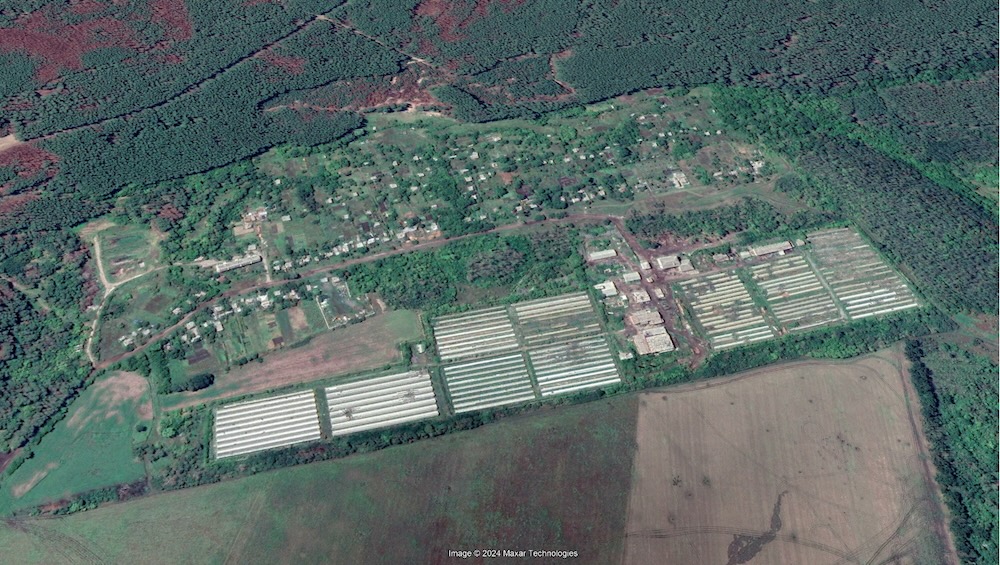
A mink farm in the Ukrainian town of Izium with visible damage from artillery shelling. Source: Google Earth
Szczepan Wójcik knows PR. He financed a documentary film: “Meet my mink farm.” Against the backdrop of caged animals that will be gassed to death and stripped of their fur, he discusses how their welfare is an indispensable part of modern Polish farming. He is a frequent guest on Tadeusz Rydzyk’s media platforms. He speaks out not only about business, but also about “gender and LGBT ideology,” which are said to be a “threat to Polish agriculture.”
No one knows that, even as Szczepan announced an intervention into the issue of slain workers in Ukraine, the Wójcik empire was quietly consolidating in Russia.
But Wojciech Wójcik’s company began slipping up. In June 2023, his employees were caught emptying a sewage tanker into a field. Two months later, the farm saw an outbreak of an infectious animal disease and the site was quarantined. In the autumn of 2023, a video on “How Poles raise mink” appeared on a local YouTube channel. Russian media workers proved that Wójcik’s farm was literally stinking up the neighborhood. Relations between the company and the local administration were becoming strained.
Despite such challenges, business in Russia was continuing to operate. The agro-farm employed more than 60 employees and killed more than 100,000 mink a year. These — at least according to officially documented information — went to Poland. Who buys them? Wójcik himself, through his company, Lawofur. It’s a one-man business.
According to Russian customs declarations we’ve obtained, the value of the pelts imported by Lawofur from Russia to Poland between March 2021 and January 2023 was €6.3 million In the first year of the war, the Russian company would up with 5.5 million zloty in revenue (all amounts are in today’s exchange rate).
Special mink operation
Poland has never before imported as many mink pelts as it did in the first year of the war, according to Eurostat data. In 2022, we imported 95.5 tons of untreated pelts worth €2.2 million (nearly PLN 8.2 million) from Putin’s country. The net weight of pelts imported by Lawofur was 75.9 tons. Finland was the only other country to import the skins (in much smaller quantities).
And although in October 2022 the furs were sanctioned — breeders could import them only until January 2023 and even then only under the condition of the existence of prior contracts — in 2023, the revenue of Wójcik’s Russian company reached 126.6 million rubles (5.9 million zloty).
From the company’s Russian audit for 2023: “The special military operation launched in February 2022 has no significant negative impact on the company, the main contractors continue to meet their contractual obligations. However, a small number of economic ties have been disrupted. At the same time, we have overcome the difficulties that have arisen and have concluded agreements with new contractors. The special military operation has not led to restrictions on sales markets.”
The largest global fur market is Asia. The logistics centers of the auction house Copenhagen Fur, which receives pelts from Agrofirma, are located in Thailand and Cambodia. Wojciech Wójcik reportedly wanted to obtain documents certifying production compliance with the veterinary requirements of these countries before he was put behind bars. Why would such a move have made sense? Because approval for sales in Asia would have allowed him to bypass Europe.
We asked the Kopenhagen Fur auction house about Wójcik’s supply of skins from his farm in Russia. Are skins stripped in Poland from animal carcasses imported from Russia a Polish or Russian product? What does the European middleman between Russian producers and Asian buyers think about circumventing sanctions?
At the time this text was published, we had not received an answer.
Who is burying Wojciech’s brother?
In Poland, the Wójcik family is surrounded by a dense network of businesses and organizations. According to the Veterinary Inspectorate’s register (which includes mink and fox farms), the four brothers and their immediate family now own 40 of the 338 farms registered in Poland.
As late as spring 2024, Wojciech Wójcik held positions in 43 companies. The register also featured brothers, wives, daughters, as well as trusted employees and business partners of the Wójcik clan. But Wojciech also runs a one-man business: the Lawofur company. It is through Lawofur that he imports furs from Russia.
We checked Wojciech’s company documents. An astonishing coincidence: after being detained in Russia, Wójcik left his position as chairman in several companies in which he remains a partner. Instead, he now has power of attorney.
All of these changes took place between May 22 and 24 at his company’s headquarters in Bialy Dwór, in the municipality of Kozmin Wielkopolski. On the documents, Wojciech Wójcik’s presence is certified by his handwritten signature.
Does this mean that he is staying in Poland? Did he return to Kaliningrad after his release for some reason?
Wojciech Wójcik is not answering the phone. Szczepan Wójcik does not want to comment on his brother. His lawyer writes to us instead, but does not answer questions. He only repeats that Wojciech Wójcik is in Russia.
Belgorod consultan
Until recently, it looked like this: Wojciech was looking after business in Russia, while Szczepan was criticizing the fur-averse European Union. Szczepan appeared at agricultural protests in Poland and Brussels.
As we’ve established, Szczepan Wójcik, while protesting the European Green Deal, worked with radical breeders’ organizations and pro-Russian parties.
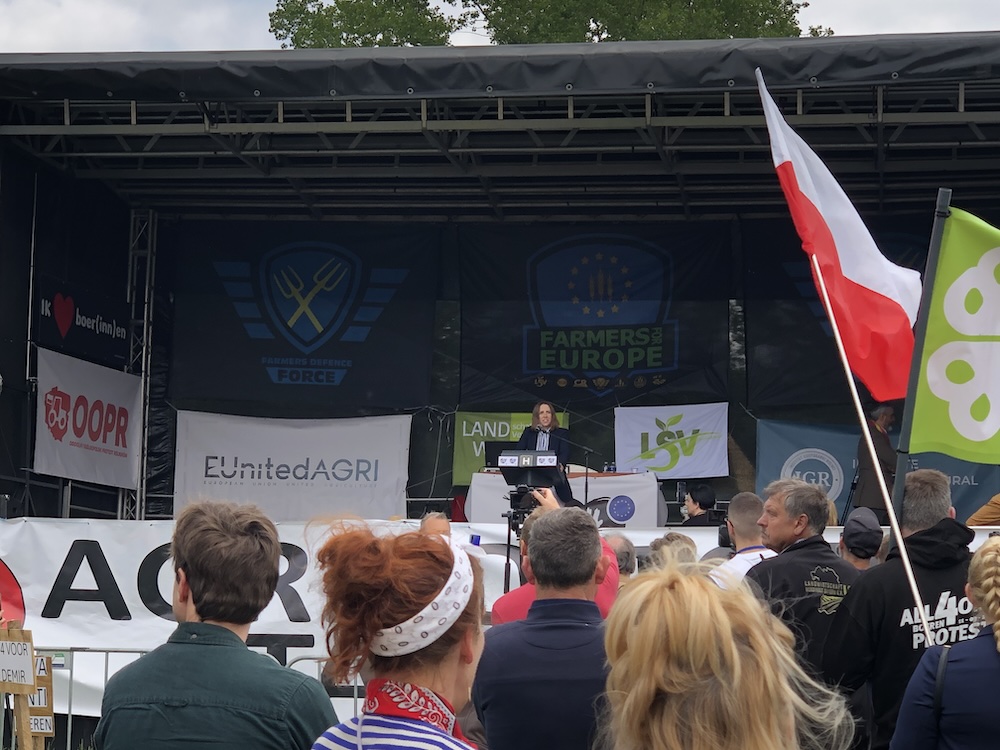
Demonstration in Brussels on June 4, organizers’ logos are seen on stage. Photo: FRONTSTORY.PL
On June 4 — a few weeks after Wojciech’s arrest — Szczepan co-organized an international demonstration in Brussels. However, he was not there to demand his brother’s release or exoneration. Instead, he was at a gathering of farmers under the slogan “Down with the Green Deal,” a joint project of Poland’s Instytut Gospodarki Rolnej (an organization founded by Szczepan Wójcik) and its sister organization, EUnitedAgri (also founded by Wójcik), the Netherlands-based Farmers Defense Force and Germany’s Land Schafft Verbindung Deutschland. What do we know about these organizations?
- EUnitedAgri: =ounded by Szczepan, this think tankk supports a number of media outlets like Farmer’s World website and Farmer’s World Business magazine. They distribute the same narrative: criticism of environmental organizations and EU agricultural policy. Propaganda content from Farmer’s World is further fed by channels on Telegram, known for spreading anti-Ukrainian and pro-Russian disinformation (e.g., Gregory Hercun’s “Guardians of Freedom”).
- Farmers Defense Force (FDF): an association of Dutch farmers. During FDF protests, farmers block roads, food stores and buildings. They openly support the far-right, and specifically Geert Wilders’ Freedom Party.
- Land Schafft Verbindung Deutschland (LSVD): an organization of farmers in Germany. It disagrees with the requirements that the European Union places on agriculture and sympathizes with the German far right. Posters of the AfD (Alternative for Germany) party have appeared at LSVD demonstrations.
We sent a reporter to the protest in Brussels. The turnout at the demonstration, which was co-organized by Szczepan Wójcik, is poor. The organizers tried to pump up the enthusiasm from the stage: more guests called for people not to vote for liberal and left-wing candidates (the June elections to the euro-parliament were just around the corner).
Banners calling for “Polexit” could be seen in front of the stage. The same font is used in the Polish elections by the “Polexit” election committee of Stanislaw Zoltek, an extreme right-winger and former MEP.
A bus for the openly pro-Kremlin Forum voor Democratie party was parked right next to the stage. The group’s leader Thierry Baudet has not condemned Russia for the invasion of Ukraine and supports the Kremlin’s policies. He is a fan of chief Putin ideologue Alexander Dugin.
Roy Nillesen – one of Farmers Defense Force leaders – appears at its tent. He is a farmer and an employee of Agro Consultancy B.V. , which has advised in Russia and China, among other countries. Nillesen himself worked for several years as a consultant in the Russian city of Belgorod.
Szczepan Wójcik knows and supports Nillesen, and on his profile on X you can find a photo of the two of them posing in the company of Geert Wilders.
We asked Nillesen questions about his relationship with Szczepan, his political leanings and his past in Russia. We also sent these same questions to the Farmers Defense Force and Land Schafft Verbidung addresses.
At the time this text was published, we had not received a response.
Love of animals and responsibility
The pro-Russian channel Mir TV covered the protest in Brussels. This is the same channel that recently broadcast the spilling of manure under the KPRM and the spilling of grain from wagons in Poland. It is famous for spreading disinformation — first about vaccines, then about the war in Ukraine and refugees, and now about farmers, the Green Deal and the European Union.
Among those present at the demonstration our reporter saw people from the Polish agricultural “Solidarity” and “Orka” (means “ploughing” in Polish) trade unions (in the spring, it occupied the Sejm and participated in talks with Prime Minister Tusk).
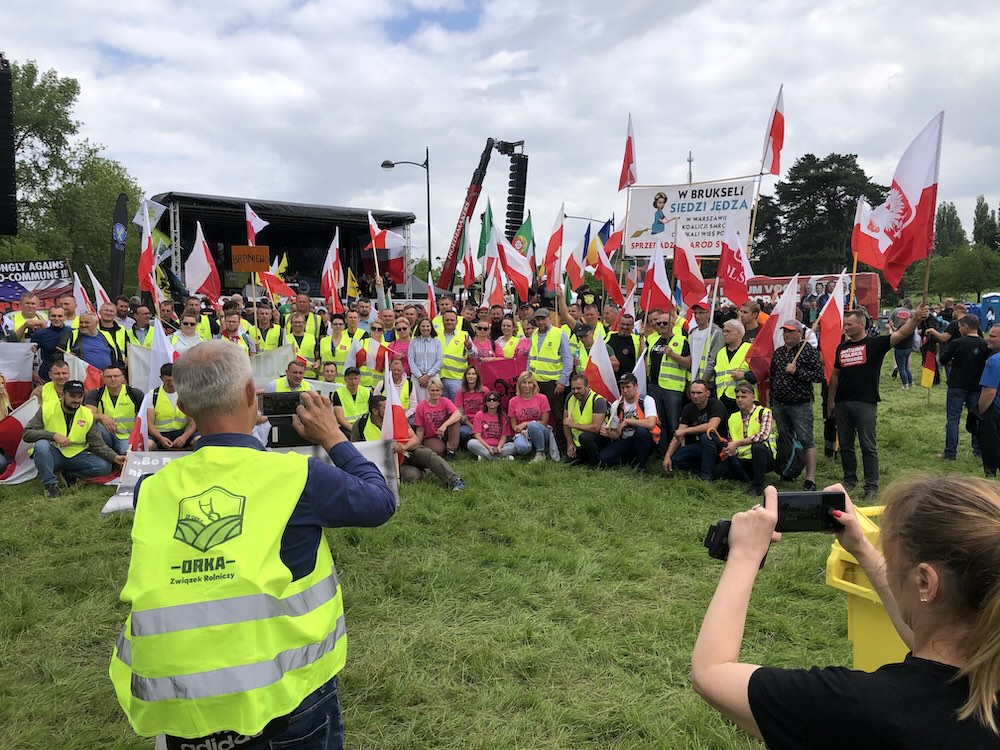
A demonstration in Brussels on June 4. Photo: FRONTSTORY.PL
The Poles were represented on stage by Karolina Hernik. She is a colleague of Szczepan Wójcik, privately related to Ewa Zajączkowska-Hernik, the newly elected MEP of the Confederation. To say that the Herniks are connected with the fur industry is an understatement: the politician’s husband is an employee of Szczepan Wójcik’s foundation, and her brother-in-law was vice president of the Polish Fur Industry Association — led by Wójcik.
Zajączkowska-Hernik worked in Szczepan Wójcik’s media for years. A recent program on Farmer’s World — a YouTube channel run by Wójcik’s site of the same name — featuring her appeared in March 2023. A few months later, Slawomir Mentzen announced that Zajączkowska-Hernik was running for election as a member of the Confederation party, a rising far-right party in Poland.
As the anti-EU agitation flowed from the stage in Brussels, Piotr Milowański, the gray eminence of the Law and Justice party and head of the campaign for the European Parliament, walked by the stage. What was he doing in Brussels that day? Milowański did not answer our questions.
We asked Janusz Wojciechowski, Agriculture Commissioner, for a comment on the demonstration. He declined. What does he make of the Law and Justice politician’s visit to the anti-Union protest? His spokesman replied, “Since taking office, the commissioner is no longer a member of the Law and Justice Party.”
Despite Wojciech Wójcik’s detention, the mink farm near Kaliningrad is running at full steam. In early June, less than a month after the arrest of its main shareholder, the company announced the recruitment of employees “in connection with the growing mink population.” The requirements? Love of animals, discipline, diligence and responsibility.
Cover photo: Ches_photos/Shutterstock
Co-founder and editor-in-chief at FRONTSTORY.PL, Wojciech Cieśla is an award-winning Polish journalist who, since 2016, has worked with Investigate Europe. He is the co-founder and chairman of Fundacja Reporterów (Reporters Foundation). He is based in Warsaw.
A Warsaw-based investigative and data journalist at VSquare and Frontstory.pl, Anastasiia Morozova previously collaborated with leading media outlets in Ukraine (Radio Free Europe, Slidstvo.info). She was shortlisted for the Grand Press Award (2022) and was a recipient of the Novinarska Cena 2022.

